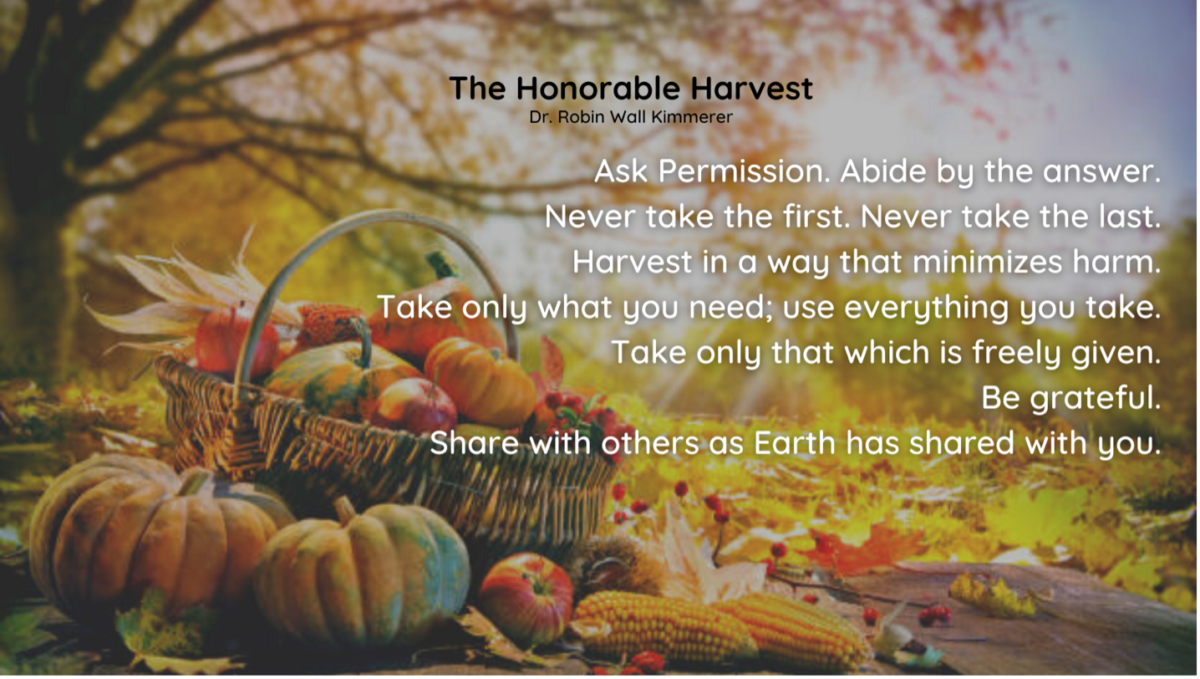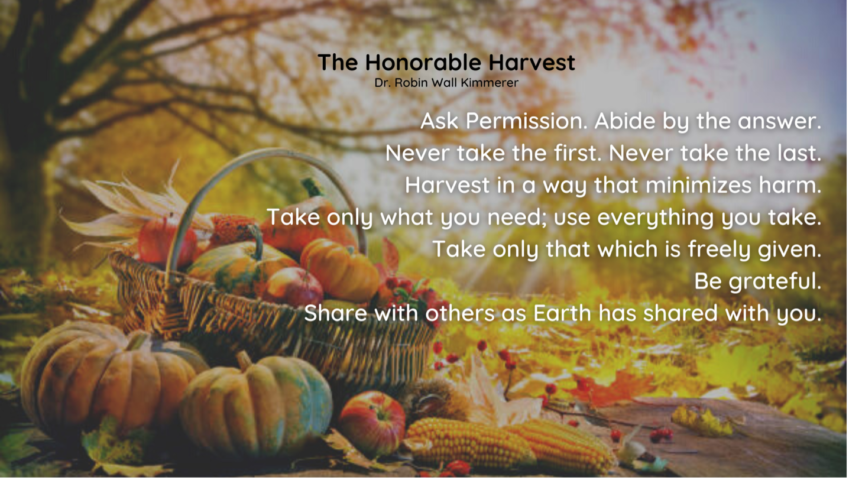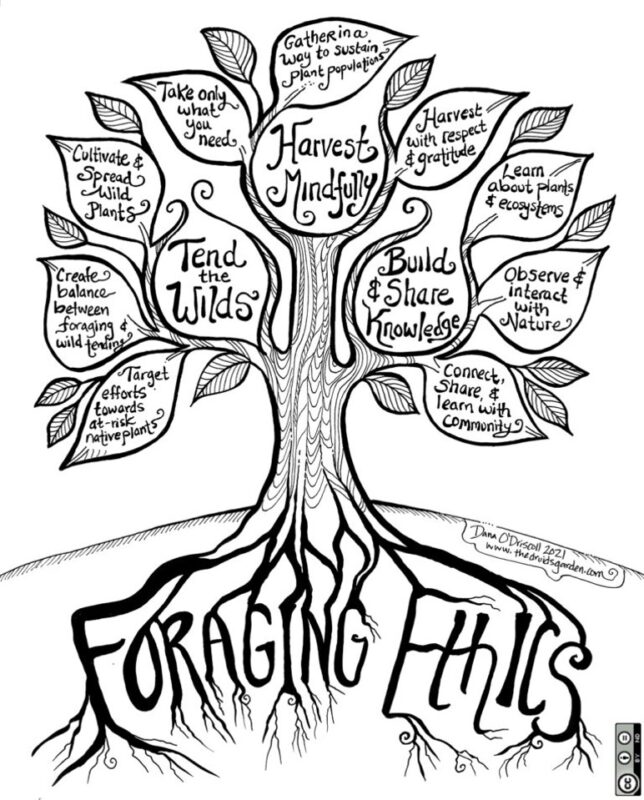“For all of us, becoming indigenous to a place means living as if your children’s future mattered, to take care of the land as if our lives, both material and spiritual, depended on it.” — Robin Wall Kimmerer
Long before there were supermarkets, farmers markets, CSAs, farm stands and fast-food restaurants, humans relied on the age-old practice of hunting and gathering. Without a sense of entitlement to immediate and bountiful culinary gratification, ancient peoples embodied an ethos of respect, gratitude and stewardship of the land that fed them, clothed them, and sheltered them from the harsh elements. However, we shouldn’t be too quick to romanticize this time in human history; after all, the austere living conditions and at times brutal nature of living off the land is what compelled us as a species to arrive at where we are today; nearly eradicating all discomfort from our on-demand lives.
The argument for living a purely hunter gatherer lifestyle is not sustainable for the majority of the nearly 8 billion people currently living on this planet, although it can be argued that there is a benefit to reintroducing this ancient wisdom into our modern lives. But how can we reconnect with this wisdom? Thankfully, there are many traditional teachings from indigenous cultures that are still practiced today, and there is a growing hunger from the wider population to learn them.
Refining your technical knowledge to become an expert forager is a lifetime endeavor. Adopting the following ethical principles will guide you not only in your next trip to your favorite mushroom stash in the woods, but also your next visit to the farmer’s market or grocery store. You may soon even witness yourself adopting these principles into your wider way of life. The Anishinaabe practice of ethical foraging is described by Robin Wall Kimmerer as The Honorable Harvest. The graphic below outlines these concepts in a way that helps us to live in harmony with Earth.

There are many ways of conceptualizing these principles, all with intention of guiding us to living in a way that benefits all beings on Earth. Although these teachings have historically been intricately interwoven with spiritual practices, you don’t need to follow a specific spiritual path to understand their importance. The next graphic gives a more specific prescription for ethical foraging practices, relying on the three main concepts of harvesting mindfully, tending to the land you’re harvesting from, and observing, learning, and sharing your knowledge (and harvest) with others.
Now that we have covered the wider concepts of ethical and sustainable foraging, here are a few principles to follow during your next foray into the forest, adopted from “A Forager’s Checklist” at Gather & Grow.
- Always positively identify a plant before harvesting and consuming.
- Use local field guides and foraging books that show detailed images and descriptions; start with plants that are easy to identify.
- Learn from experts to safely get to know wild plants.
- Bring the right tools: gloves, pruners, a knife, a first aid kit, and the right type of container to bring the plant material home.
- Know what parts of the plant are safe and when. Many wild plants can be toxic before they’re fully ripe or before processing. Research each plant you’re interested in foraging so you can work with it safely.
- Avoid harvesting from contaminated areas such as roadways, agricultural streams, canals, and residences and public parks where harmful chemicals are used.
There are many reasons why people are drawn to foraging, from the spiritual to the practical. It is my hope that as the momentum for this endeavor increases, the traditional practices of living in harmony with the land returns us to a common language and a way of life we all understand.
Brooke serves as the Restoration Coordinator for Friends of the St. Clair River, assisting others in pursuing conservation and restoration endeavors in their own backyards and in the larger community.
Sources and Further Reading:
Principles of Ethical Foraging



1 Comment
Great article, Brooke is very knowledgeable. I look forward to more informational articles from Friends of the St. Clair River team. Thank you!!!